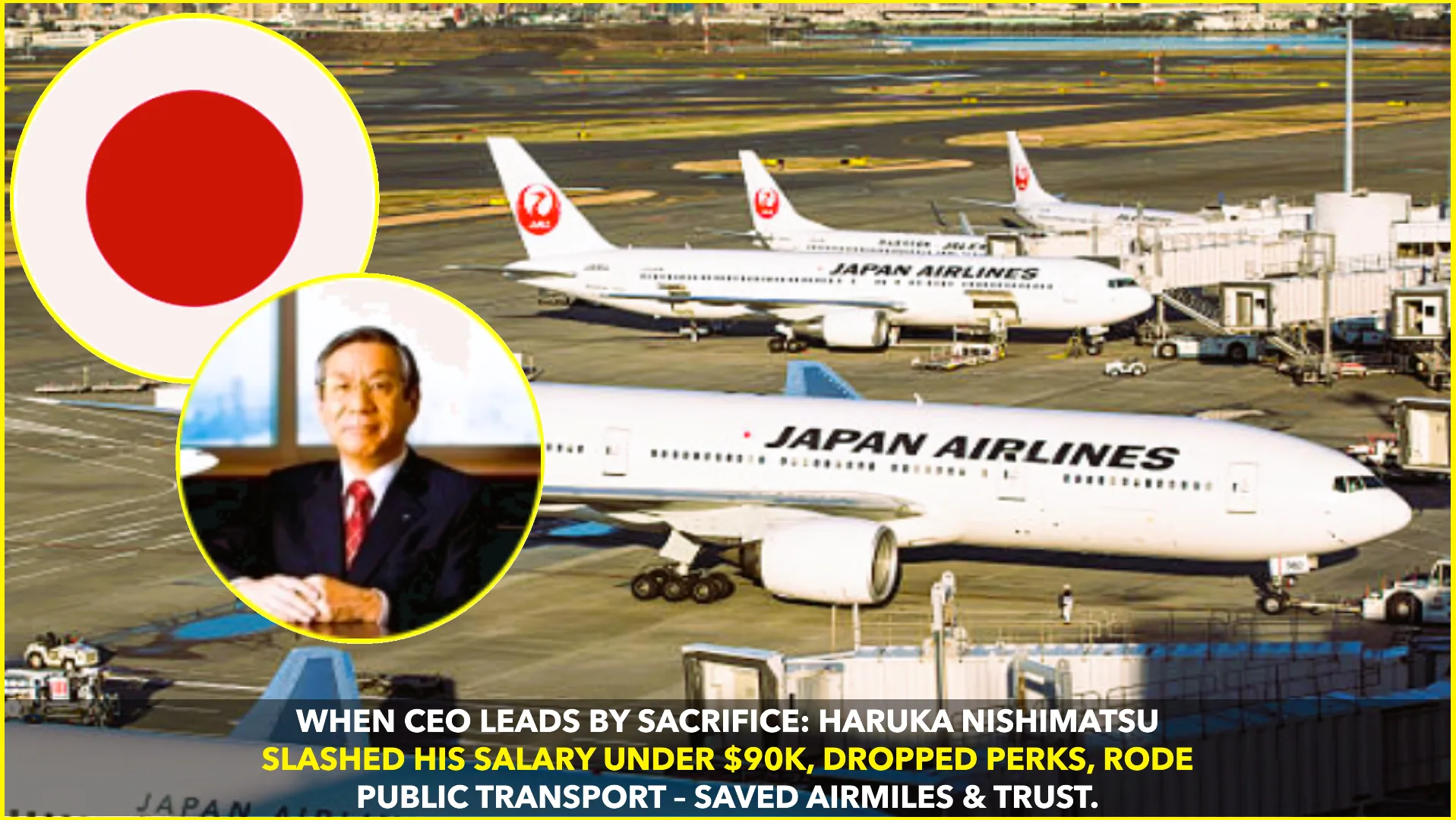In the turbulent years leading up to Japan Airlines’ (JAL) 2010 bankruptcy, Haruka Nishimatsu, then CEO and president, emerged as a global symbol of humility and sacrificial leadership. With the airline strapped under mounting debt, Nishimatsu made a stunning decision: he reduced his annual salary to below $90,000—less than what some of his pilots were earning—demonstrating a rare, people-centered approach to crisis leadership Facebook+2CIJ Today+2.
When the global financial meltdown rippled into Japan, JAL teetered on the brink. Instead of resorting to mass layoffs, hefty executive bonuses or ivory-tower isolation, Nishimatsu stepped forward to share in the company’s burden. He voluntarily cut his compensation by around 60%, rendering his pay less than many pilots’ earnings in a bold show of solidarity Forbes+1.
But wage cuts were just the beginning. He also abandoned corporate perks: relinquishing a private office, giving up a company car, and removing his office door. Instead, he commuted with the public, rode buses or trains, and entered a simple, communal workspace with his team—literally joining his employees at the same level and sharing their daily routine LinkedIn+1.
Rather than isolating himself in a boardroom, Nishimatsu worked elbow-to-elbow with staff. He ate lunch in the cafeteria alongside flight crew, ground staff and support teams. He chose transparency over executive privilege: no closed-door policies, no hierarchical barriers, just face-to-face availability for anyone in the company. These gestures, small on their own, combined into a powerful message: leadership is about serving people, not commanding from above The Business Monk+1.
Despite his heroic gestures, JAL still filed for bankruptcy protection on January 19, 2010, under Japan’s Corporate Rehabilitation Law. The airline received a ¥300 billion cash bailout, saw ¥730 billion in debt forgiven, and restructured by cutting one-third of its workforce—about 15,700 jobs—before eventually relaunching as a leaner operation Wikipedia. Yet even in the throes of legal and financial upheaval, Nishimatsu’s humility resonated across Japan and the global business community.
What sets his story apart isn’t just the numerical sacrifice—but the emotional resonance of his choices. Employees at JAL watched as their leader gave up income, perks, and status. That image inspired trust: when your boss gives up their salary so you don’t lose your job, you feel valued. That trust boosted morale across the organization, forging a collective spirit of resilience The Business Monk+1.
Nishimatsu’s example fits within the concept of servant leadership—a philosophy where leaders prioritize the needs and well-being of their team instead of self-interest or corporate prestige. In Japanese culture, values like humility, community, and harmony are deeply embedded; Nishimatsu’s behavior amplified those values in a modern corporate crisis CIJ Today+1.
More than a decade later, his actions continue to inspire. Business schools reference his story as a case study in ethical leadership. Leadership trainers highlight that real influence comes not from titles or offices, but from empathy, visibility, and shared sacrifice. In an era where many executives enjoy bloated compensation and optically insulated positions, Nishimatsu offers a rare model of authentic leadership.
Even though JAL ultimately went through reorganization, Nishimatsu’s moral leadership remains the lasting legacy. It sends a clear message: ethical leadership isn’t about ranks—it’s about relationships. Real leaders earn as much respect through their deeds as through their decisions. Nishimatsu’s willingness to be part of the solution, with dignity and humility, spoke louder than any boardroom announcement.
At a time when headlines are dominated by executive excess and opaque decision-making, his story feels especially relevant. It reminds us that leadership founded on trust, close connection, and shared hardship is not only compassionate—it’s effective.










